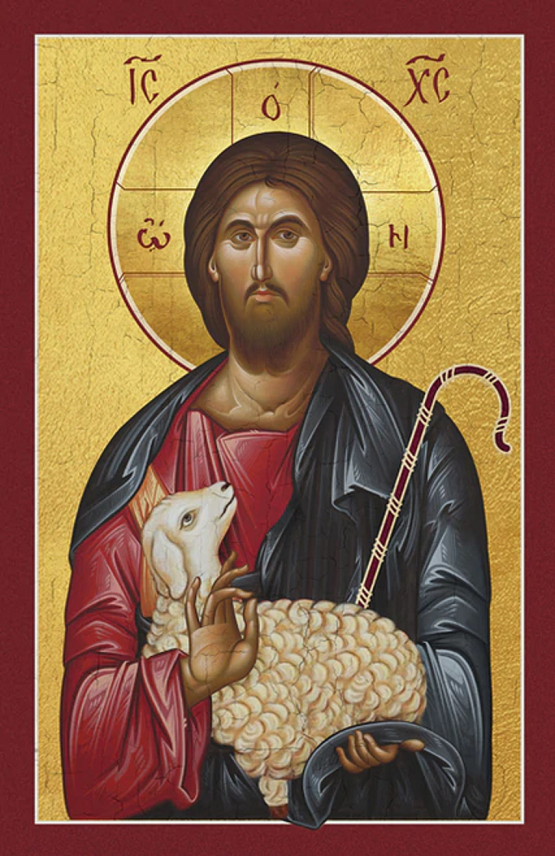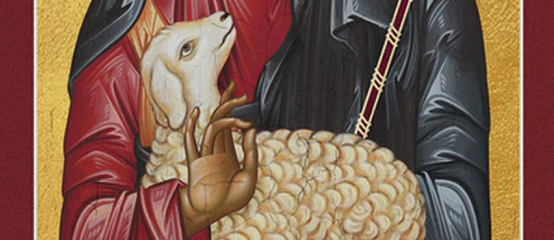That They May Have Life
Fourth Sunday of Easter Scripture Readings

We must never be surprised at the subtleties we find in our Scriptures. Of all the writings that appeared in the first century explaining the life and work of Christ and his disciples, only a very few were chosen to be included in the canon of Scripture. They were chosen because the Church recognized that they were prophetic—that is, they are forever new. Every person in every generation who reads our Scriptures with devotion will discover ever-new meanings. Our Scriptures, especially the gospels, are alive with the Holy Spirit of God, and they engage with us in a dynamic dialogue.
Take today’s gospel, for example. I asked myself a question as I re-read the text from Saint John’s Gospel where Jesus talks about himself as the “sheep gate.” I wondered why the Church, when deciding on which passages should be read in every liturgy, decided to place this passage here in the Easter season, so close to the feast itself. How does the theme of the sheep gate relate to our death and resurrection? I’m not sure I can adequately answer that question, but I’ll give it a good try.
In this gospel passage, Jesus is in conversation with the Pharisees. In the chapter just prior to this, Jesus has cured a man born blind. The religious leadership—the chief priests, scribes, and Pharisees—had brought the man in for questioning and ended by expelling him from the synagogue. In effect, he was being excommunicated. In response to this, Jesus tells his listeners, “I came into this world for judgment, so that those who do not see might see, and those who do see might become blind.” In reply, the Pharisees asked him, “Surely we are not also blind, are we?” [John 9:39-40] As the key to judgment, Jesus presents himself as the linchpin on which hinges sight and blindness, salvation and condemnation.
The image that Jesus presents to the Pharisees as an example is that of the sheepfold. Here’s how a sheepfold functioned in Jesus’s time and still functions the same way in some areas today. Every sheep-raising locale had one or more sheepfolds where shepherds would keep their flocks safe at night from bandits and wild animals. Several shepherds would keep their flocks in the same enclosure. When a shepherd wanted to lead his sheep to pasture, the gatekeeper would open the gate and the shepherd would give a particular call. His sheep—and only his sheep—would follow him out.
In this illustration, Jesus is not identifying himself directly with the shepherd. For him, the voice of the shepherd is the voice of God, the Shepherd of Israel. Instead, Jesus identifies himself with the gatekeeper. It’s through him that the Shepherd of Israel calls his sheep, and it’s through him that God’s people pass to find pasture, security, and salvation. He contrasts how the sheep follow the voice of the shepherd with how they ignore other voices. The sheepfold isn’t meant to divide one flock from another or one shepherd from another, rather, its purpose, as we’ll see momentarily, is to keep the sheep safe from marauders.
Consider this in the context of the man born blind. Jesus was the instrument of his healing, while the Pharisees were the instrument of his rejection. Is it any wonder that “the Pharisees did not realize what he was trying to tell them”? After all, they considered themselves the experts in their religious practice and the arbiters of faith and morals for the Hebrew people. They couldn’t fathom that their voice, the voice of religious orthodoxy, religious self-promotion, and religious exploitation was not also the voice of God. They were blind to the fact that the people didn’t recognize and heed their voices. Theirs were the voices of strangers.
In the face of the Pharisees’ incomprehension, Jesus confronts them even more harshly. He tells them not only that their voices are the voices of strangers, but that they are also the voices of thieves and robbers. That’s why the sheep pay no attention to them. They’re not there for the good of the sheep, to feed and nurture them, but to judge and exploit them. Jesus contrasts the nit-picking legalism of the Pharisees with his own call to life and radical freedom—the freedom of the children of God.
Jesus brings new life to the sheep as he brought new life to the man born blind. He brought not only sight to the man but a radically new life. Imagine what it would be like and how your life would change if you had lived to adulthood in blindness, and then, suddenly, you were able to see clearly. Nothing would be the same. Many of us know what it’s like to live a life of futility based on one set of assumptions, and then suddenly realize how wrong we were and find our way forward transformed so that life takes on new meaning and vitality. That’s the transformational power of the grace of God.
As gatekeeper to the sheepfold, Jesus’s role is not to keep some of the sheep in and others out. He’s not there to determine which are the good sheep and which are the “bad” ones. His role is to protect all the sheep from those that would lead them astray and harm them—those that would “steal and slaughter and destroy.” Jesus didn’t come to shame, criticize, or condemn. In fact, his mission was precisely the opposite. He came to care for us, to pasture us, to protect us from those who would harm us, to open our eyes to the newness of life and our ears to the voice of God, our Shepherd. As the psalm sings in our hearts, “Yahweh is my shepherd, there is nothing I shall want.” [Psalm 23:1]
Woe to those who obscure and shut out the voice of the shepherd. Woe to those who preach condemnation, hellfire, and brimstone in the name of our God. Woe to those who defile the name and image of our God by their prejudice, anger, bitterness, vengefulness, and hatred, pretending to be shepherds of the faithful. They are the thieves and robbers who “steal and slaughter and destroy” the flock and who scare away those who yearn to find a life of meaning through faith and hope and love. For those who turn a deaf ear to the voice of the thieves and robbers and listen and respond to the voice of the true Shepherd in whatever manner they may hear it, the gate is open “so that they may have life and have it to the full.” That sounds like resurrection to me…how about you?
Get articles from H. Les Brown delivered to your email inbox.
